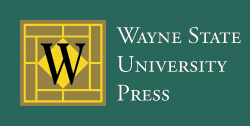Abstract
Teo Hsu-Ming’s Love and Vertigo (2000) follows multiple generations of a family through Singapore and Sydney, as they are racialized in these neoliberal contexts. It also repeatedly explores the dynamics of decision-making, presenting its characters with impossible choices and lose-lose scenarios. This article investigates the relation between choice, neoliberalism, and migrancy in Singapore and Sydney, the main settings of Teo’s novel. It argues that the idea of choice is mobilized here to illustrate structural limitations to decision-making in the context of neoliberalism’s regimes of racialization. By exploring the way choices are circumscribed and then made, the dynamics of neoliberalism and racialization in Sydney and Singapore are examined afresh. In so doing, this article interrogates the degree to which choice is liberating and celebrates the ways in which “decision and domination” (following Jane Elliott) can be resisted.
Recommended Citation
Perks, Samuel
(2019)
"Neoliberal Subjectivity and the Agony of Choice in Teo Hsu-Ming’s Love and Vertigo,"
Antipodes: Vol. 33:
Iss.
2, Article 11.
Available at:
https://digitalcommons.wayne.edu/antipodes/vol33/iss2/11
